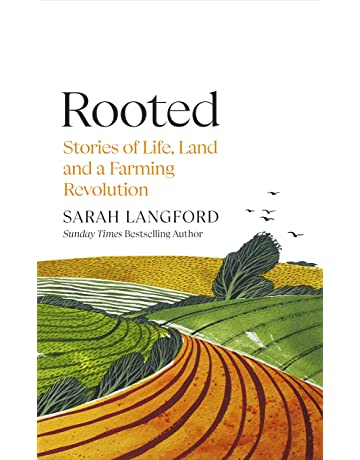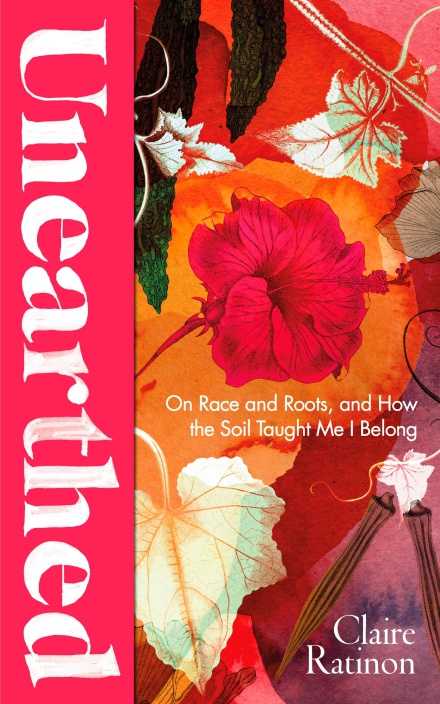“… the complex relationships we all have with the land“
.
This morning’s Start the Week on Radio 4 takes us to the current urgent debates around growing our food:
A revolution in food and farming
The environmentalist George Monbiot argues that farming is the world’s greatest cause of environmental destruction, but few people want to talk about it. In Regenesis: Feeding the World Without Devouring the Planet he presents a vision for the future of food production. He tells Tom Sutcliffe that new ideas and technologies from soil ecology to laboratory-grown food could change the way people eat while regenerating the landscape.
But many farmers believe that they have been unfairly accused of ecological mismanagement, and that they are uniquely placed to restore the earth and provide a sustainable future. Sarah Langford has returned to her country roots after working for many years as a criminal barrister in the city. In her book, Rooted: Stories of Life, Land and a Farming Revolution she shows how a new generation of farmers are set on a path of regenerative change.
While Sarah Langford comes from a family of farmers, for many city dwellers it can be difficult to cultivate a connection with the earth. In her memoir, Unearthed: On Race and Roots and How the Soil Taught Me I Belong, Claire Ratinon, explores how she grew up feeling disconnected with the natural world and with family stories of slave ancestors forced to work the land. Through learning to grow her own vegetables and especially the food of Mauritius, she has finally felt able to put down roots.
BBC Radio 4 – Start the Week, A revolution in food and farming
The New Scientist reviews George Monbiot’s book:
Regenesis review: Farming is killing the planet but we can stop it
“Farming,” says Monbiot, a columnist for The Guardian newspaper and an environmental activist, “is the most destructive human activity ever to have blighted the Earth.” It is a deliberately provocative statement, of course, but it shows how the myth of the green and pleasant farm is deeply ingrained. Even after reading this comprehensive, devastating and rousing book, that statement still took me aback. But Monbiot lays out his case with statistics and backs it up with citations – the destruction, the ecocide, the suffering, the exploitation, the economic senselessness. It is undeniable…
Your reward is the book’s second half, where he offers a treasure trove of hope and solutions, and a vision for a sustainable, healthy, equitable world. Monbiot knows that in transitioning from our destructive practices, we must bring farmers with us. We meet inspiring farmers who pioneer ways to grow food that don’t destroy the soil’s fertility and allow other species to thrive too, as well as some radical solutions. One of the most exciting is using bacteria to make protein. Monbiot eats a pancake made from the stuff, and proclaims it “the beginning of the end of most agriculture”. Well, that would be nice. Does Monbiot overestimate not only the willingness of the general public to eat bacteria as their main source of protein, but to entirely change food habits – something at the heart of all cultures?
Maybe, but change can happen quickly. Some social scientists argue that a decent-sized minority, around 25 per cent, can trigger society-level tipping points in attitude. Look at the worldwide shift in support for LGBTQ+ rights and same-sex marriage… So yes, this essential book really should put you off your dinner. It should put you on to something sustainable, equitable, ecologically beneficial and, hopefully, delicious.
Regenesis review: Farming is killing the planet but we can stop it | New Scientist
George Monbiot: Farming is the most destructive human activity ever – YouTube

This is a personal account from Sarah Langford’s website:
Rooted: Stories of Life, Land and a Farming Revolution
Farming formed a large part of my life growing up. My grandparents were tenant farmers in Hampshire, a farm my Uncle now works. My father was a land agent. As a child, much of my life was rooted in the farming world.
But for most of my adulthood I lived and worked in cities: at university and thereafter when I became a barrister. Then, when I was writing my first book, our circumstances changed. Without really expecting, or particularly wanting to, I moved with my husband, son and baby, out of London and to the edge of a field in Suffolk. Over the following years we took on the running of his small family farm: replanting hedgerows, re-establishing rights of way, experimenting with different grazing techniques and converting 200 acres of conventional arable to organic.
I found the farmers around me in a very different place to the one my grandfather had been in when he was alive, known and respected for growing the nation’s food. When we moved back to London a few years later I was struck by how wide the gap in understanding between city and country seemed to have grown.
Rooted is my attempt to tell the human side of farming. As with my previous book, In Your Defence, it seeks to shine a light on some of the people in farming that those in the city rarely get to hear from. Through their stories I hope to show the human cost of modern farming, as well as casting a light on a quiet revolution happening on farms all over the country alongside some of the biggest political changes to farming in two generations. Around the farmers’ stories I weave my own: how I moved to the countryside for a break from ‘real life’ and ended up finding it instead.
Rooted: Stories of a Farming Revolution | website
And Penguin showcase the latest from Claire Rationon – with a link below to a book event later this month in Tiverton:

Unearthed – On race and roots, and how the soil taught me I belong
Like many diasporic people of colour, Claire grew up feeling cut off from the natural world. She lived in cities, reluctant to be outdoors and stuck with the belief that success and status could fill the space where belonging was absent. Through learning the practice of growing food, she unpicked her beliefs about who she ought to be. Over her first year living in the English countryside and with the first vegetable patch of her own, she finds a pathway back to nature’s embrace. And through growing the food of Mauritius, recording her parents’ stories and exploring the history of the island, she also strengthens her connection to her homeland.
A beautiful work of nature-writing, memoir and storytelling, Unearthed urges us to look to the world outside for the belonging and home we seek. It is a heartfelt call to reconsider our history, the way we think about nature and the complex relationships we all have with the land.
This book is a work of nature writing, storytelling and memoir, and it charts our first year of making a life in the countryside while reflecting on my journey into food growing, the stories of my family and the history of Mauritius. It explores how, in coming back to the earth, I have found a sense of homecoming, defiant ancestry and deep purpose in the company of the roots, leaves and fruit that I grow.
https://www.claireratinon.com/
You can carry on the evening , and join Sophie, Claire and fellow attendees, for a two-course informal supper at The Lost Kitchen…